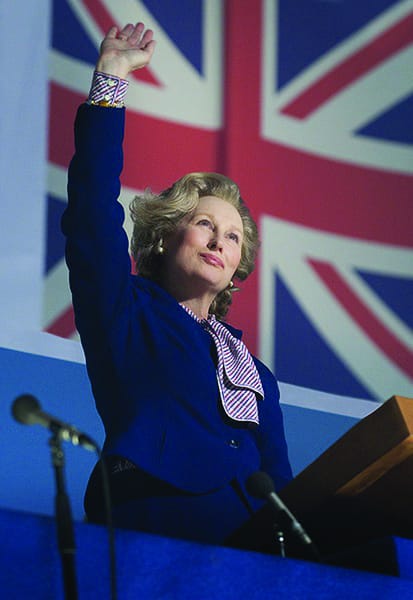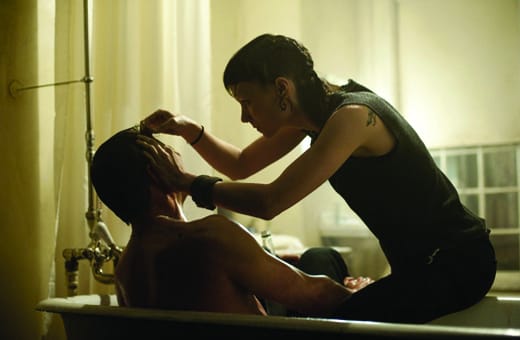In memory of the nation’s favourite detective
Final episode has more holes than dutch cheese, says Maciej Matuszewski
So the second series of the BBC’s brilliant Sherlock has come to an end. The first series showed that it is possible to make a fresh, modern television adaptation while remaining impressively faithful to the hundred year old source material. The second showed that the creative team has lost none of their spark in the intervening time.
The first episode ‘A Scandal in Belgravia’, (in my opinion the best of the three making up this year’s showing) got things off to a great start. It struck the perfect mix of references to classic Sir Arthur Conan Doyle stories, sure to raise a smile with avid Holmes fans, and an exciting new conflict with Irene Adler. Like in the Guy Ritchie Holmes film her role has been far expanded from her one appearance in Doyle’s work but, unlike in the films, here this works. Perhaps it is that the chemistry between the actors playing Adler and Holmes works better in the TV show, at first conveying antagonism before moving on to, for lack of a better phrase, professional respect and, finally, the barest hint of something more.
Certainly the episode’s pacing was far better than that of the films. Though some forty minutes shorter than either of the movies the lack of the distraction of ever present, over-the-top action scenes allowed far more plot and character development to be fitted in. Not that this is all reserved for Holmes and Adler – one of the greatest strengths of ‘Sherlock’ is the growing friendship between Holmes and Watson, which has such dramatic payoff in the last few scenes of the final episode.
I am, however, getting ahead of myself. ‘The Hounds of Baskerville’, the second episode, was probably the weakest of the trio. There was nothing technically wrong with it and it was perfectly enjoyable, it’s just that while the other episodes feature Holmes pitting his wits against an intellect his equal, this, in the end, is just a rather simple mystery. There are a few scenes dealing with Holmes feeling fear for one of the first times in his life as a result of being exposed to military hallucinogens but this ends up going nowhere. In short – a forgettable interlude that came between two episodes that build well upon each other.
The show’s finale, ‘The Reichenbach Fall’, is difficult to analyse. While in many ways a great episode it was also immensely disappointing. To explain why, I’m afraid that I’ll have to move into spoiler territory. The episode deals with Moriarty, the consulting criminal introduced at the end of the first series and person revealed to be responsible for many of the events of ‘A Scandal in Belgravia’, framing Holmes for causing all the crimes that he solves to make himself look good. Moriarty even pretends to be an impoverished actor Holmes hired just so that he could have a nemesis. This is done so well that even I began to believe him.
To explain why, I’m afraid I’ll have to move into spoiler territory
Unfortunately this leads to a rather significant plot hole – Holmes’ hugely influential brother Mycroft, of whom Holmes even says that “occasionally he is the British government”. He knows very well that Moriarty is not just an actor and he could have easily used his connections to show that the evidence against his brother was faked. Holmes’ pride explains why he never asks Mycroft for help but Mycroft himself is shown to care deeply for his brother and to want to help – but he never does, even when the situation gets desperate. He could have even probably had Moriarty assassinated – after all, it is shown that he had no qualms against holding him prisoner illegally and torturing him before the events of the series.
I am quite vocal in my dislike of plot holes but, while it does come close and is still exceptionally annoying, I’m going have to say that it doesn’t ruin the episode for me. The reason is that, however stupid the means by which they get there, Holmes’ and Moriarty’s final stand-off is genuinely dramatic. You really sense that Moriarty is Holmes’ equal and criminal counterpart – Moriarty’s cry of “You’re me. You’re me” near the end is genuinely chilling – and the tension builds up until the final climax when … well you might guess from the episode title.
In short, while not perfect, this show was truly an engaging watch. The stories were, for the most part, incredibly engaging and the acting was marvellous. If you haven’t seen it yet I strongly advise you to catch it while it’s still on iPlayer.








